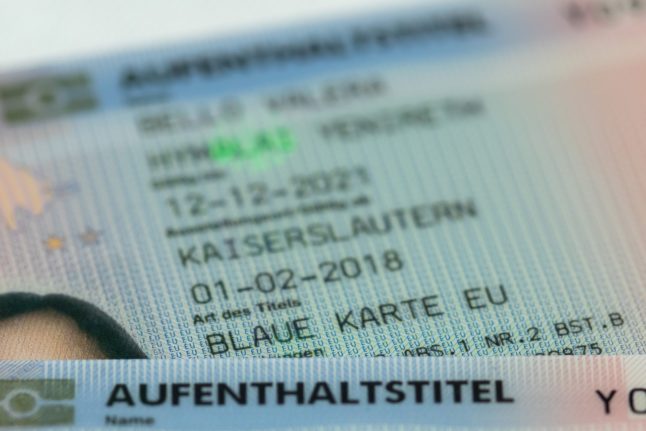Immigration has long been a hot-button topic in Germany. And with the anti-immigration party Alternative for Germany (AfD) seeing rising support recently, foreign nationals may be feeling a little concerned.
However, a new study highlights the contribution that foreign nationals have made in the workforce – specifically in STEM (science, technology, engineering and maths) professions, an acronym known as MINT in Germany.
‘A small German immigration miracle’, is how business magazine WirtschaftsWoche described the phenomenon of the rising number of employees in technical and scientific professions from abroad.
“When global corporations like Intel or TSMC come to Germany, they also need experts to work for them,” said WirtschaftsWoche in a report published on Friday August 25th.
“The planned Intel plant is expected to create up to 20,000 new jobs in Magdeburg alone. In Germany, a country with a shortage of skilled workers? This is a problem. But a study by the Institute of the German Economy (IW), which is exclusively available to WirtschaftsWoche, shows what an important contribution immigration already makes. In the past 10 years, Germany has experienced an immigration miracle, albeit a relatively small one.”
READ ALSO:
- Language and long waits: Why skilled workers are put off moving to Germany
- Could backlogs at Germany’s foreigners’ offices stifle skilled immigration?
How have foreigners contributed to STEM in Germany?
According to the study, the number of employees from abroad in STEM professions in Germany has increased by around 190 percent from around 70,000 at the end of 2012 to almost 202,000 professionals at the end of 2022.
The 132,000 additional foreign employees – with jobs such as IT specialists, industrial engineers and scientists – contribute about 16 billion euros per year to Germany, the research found. The proportion of foreigners within STEM has almost doubled within 10 years from 6.5 to 12.7 percent.

Overall, employment in STEM professions in Germany rose from over one million to more than one and a half million, an increase of almost 50 percent.
Where are workers coming from – and which areas are they settling in?
Immigration from non-EU countries to Germany’s STEM workforce is particularly high. It has more than quadrupled from over 30,000 in 2012 to almost 122,000 by the end of 2022. The front-runner for origin countries is India with an increase of 635 percent – from 3,750 to over 27,500 skilled workers at the end of 2022.
READ ALSO: Germany sees ‘over 550 percent ‘ increase in IT workers from India
People from Central and South America are next, increasing from 2,310 in 2012 to 9,870 workers in 2022. North Africa is the third highest origin country – going from 1,270 STEM workers in 2012 to 8,050 in a decade.
A similar picture emerges among engineers. Here, the proportion of foreigners in Germany grew from 6 to 10.5 percent between 2012 and 2022. But there are large regional differences. The proportion of foreigners in engineering professions is particularly high in Starnberg (27.4 percent), the Main-Taunus district (22.3 percent), Munich and the surrounding area (22.6 percent) and Berlin (19 percent).
It’s a mixed picture in eastern Germany. The share of foreigners in engineering jobs is much lower in Mecklenburg-Western Pomerania (3.9 percent), but in Brandenburg it’s almost twice as high at 7.4 percent.
The Ilm district in Thuringia, where the share of foreign engineers has grown from under five percent to over 22 percent in the past 10 years also stands out. According to the authors of the study, this is due to the many graduates of the TU Ilmenau and foreign companies setting up there.
The example of the Tesla plant in Grünheide in the Oder-Spree district shows that large international companies are reinforcing the trend. There, the proportion of foreign engineers rose abruptly after the car manufacturer set up shop.
Whether this is also to be expected in Magdeburg or Dresden, where the chip companies Intel and TSMC want to launch remains to be seen. At the end of 2022, the proportion of foreigners in engineering professions in Magdeburg was just 4.7 percent.
Meanwhile, Germany is continuing its push to increase immigration from abroad to help ease the worker shortage.
In June, the government approved a new skilled immigration law designed to cut red tape and encourage more immigration from abroad.
READ ALSO: When will Germany’s new immigration rules come into force?





 Please whitelist us to continue reading.
Please whitelist us to continue reading.
Member comments